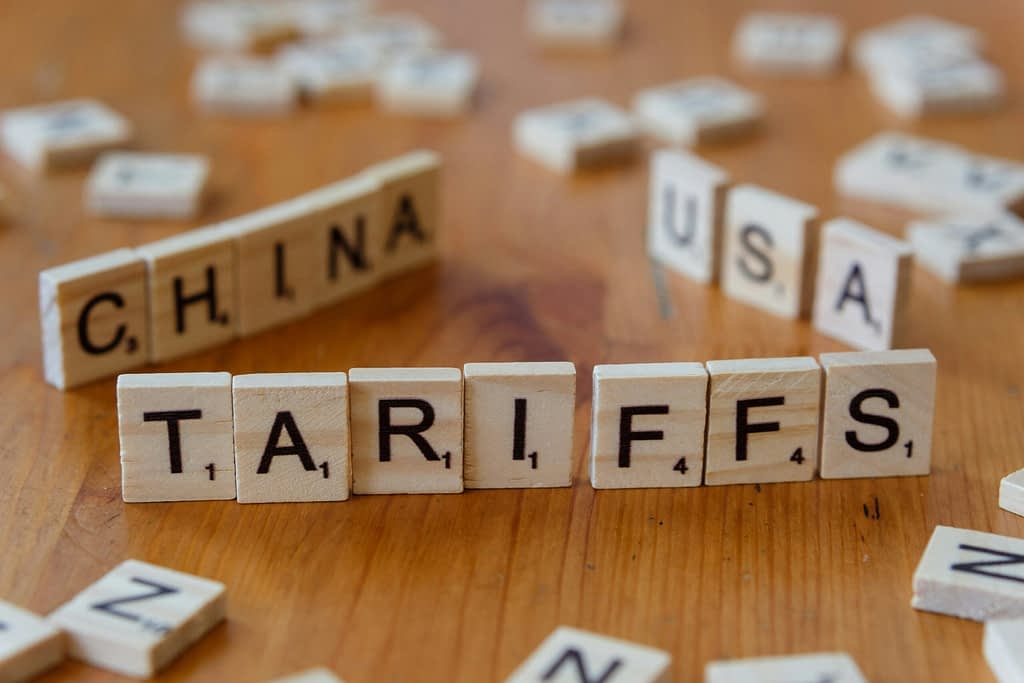The Trump administration is considering a dramatic reduction in tariffs during weekend talks with China to de-escalate tensions and mitigate the economic pain both sides are beginning to feel.
Sources familiar with preparations for the talks, which begin Saturday in Geneva led by US Treasury Secretary Scott Bessent and Chinese Vice Premier He Lifeng, say the US side has set a target of reducing tariffs below 60% as a first step. Progress in the two days of scheduled discussions could see these reductions implemented as early as next week. The negotiations will likely be exploratory and more focused on airing grievances than finding solutions.
Key Negotiation Priorities
High on the US wish list is securing the removal of China’s export restrictions on rare earths used to make magnets, as various industries face disruption. Progress has also been made on the fentanyl issue – talks are expected regarding reducing Chinese exports of ingredients used to manufacture this opiate.
The biggest challenge is the height of tariffs between the world’s two largest economies, with US duties on many Chinese imports reaching 145%. Even a dramatic de-escalation is unlikely to bring much relief to American consumers.
“You can’t get any higher – it’s at 145%, so we know it’s coming down,” Trump told reporters on Thursday. “I think we are going to have a good weekend with China.”
“De-escalating, bringing those rates down to where they should be, is Scott Bessent’s goal and the Chinese delegation’s goal,” Commerce Secretary Howard Lutnick told CNBC.
US stocks rose as investors welcomed Trump’s comments. Hopes that the US will iron out trade deals has helped lift the S&P 500 Index back to where it was prior to Trump’s April announcement of reciprocal tariffs, which triggered the worst day for Wall Street since 2020.
Both Sides’ Positions
- USA: Goal to reduce tariffs below 60%, priority on removing restrictions on rare earth exports and addressing the fentanyl problem
- China: Calling for the cancellation of unilateral tariffs, expecting initiative from the US
Chinese officials have been reserved about their aims. Beijing reiterated its call for the Trump administration to cancel unilateral tariffs. Commerce Ministry spokesman He Yadong stated that the US “needs to show sincerity to talk and be prepared to rectify its wrongdoing.”
“The US will have to take the initiative because the trade war was launched from their side,” said Song Hong from the Chinese Academy of Social Sciences. “If it slashes the levies to 60% or lower, I believe China will follow suit rather quickly.” It’s unlikely, however, that all tariffs would be removed. “China no longer holds the delusion that US policy on China will change,” he added.
Economic Impact and Market Reactions
The current trade tensions are causing significant damage to both economies. According to Bloomberg Economics calculations, current tariffs would reduce US GDP by 2.9% and increase core prices by 1.7% over two to three years. Even at half their current rates, the negative impact would still be significant for an economy that contracted in the first quarter of this year before the new duties were imposed.
For China, the tariffs likely contributed to the worst factory contraction since December 2023. While April’s exports were stronger than expected, shipments to the US dropped sharply, with the impact of the trade war likely to become more pronounced starting this month.
Long-term Outlook
Despite a possible agreement on tariff reduction in the coming days, the US and China are not rushing toward a broader deal. Bessent stated at a meeting hosted by JPMorgan that reaching a complete agreement with China would take 2-3 years.
“Through these talks, we’re going to find out whether the US is serious,” said Wu Xinbo from Fudan University in Shanghai. “The negotiations will be a long and complicated process. This is just the beginning.”
Each side has reasons to be suspicious. China would like to see US tariffs return to pre-April levels, while it’s unclear whether China is prepared to undertake the structural reforms that Washington has long demanded.
“The roadblock to an agreement is the pride of both leaders,” said Andrew Collier from Harvard University. “In Trump’s case, there are his promises to his political base that he will ‘solve’ the trade deficit. Xi must show the hardliners in the Politburo that he will not show weakness to the US.”




